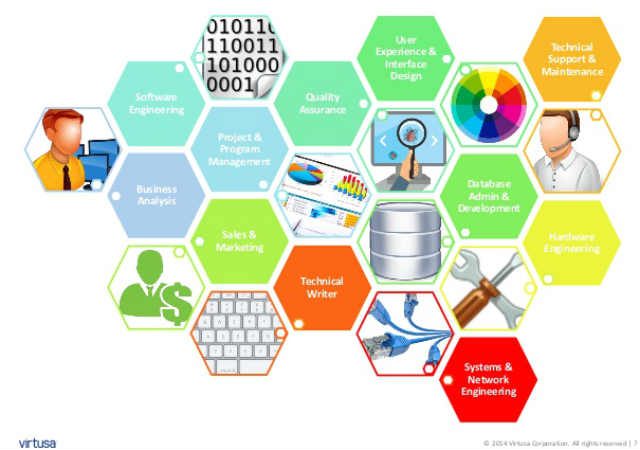 Here are useful tips on how to start a career in IT.
Here are useful tips on how to start a career in IT.
Those who work in IT know that in this line of work, thinking is much more important than knowledge you’ve got by all that custom essay writing while at college. So what is a good way to begin your career in IT sphere? Read on for useful advice that may come in handy at the start of your professional career.
- Make a first step
There is no universal recipe of how you can a career in IT. It would be better if you start with analysis and assessment of your strengths and weaknesses, choose the specializations that appeal to you the most, make your own progress plan and follow it.
Practice writing a convincing resume. Allow some time for viewing job offers available, updating your resume according to different job offers and sending it to potential employers.
Think of what pay level you can count on taking into consideration your knowledge and skills. Do some research: analyze open sources, job offers, and other candidates’ resumes.
- Find yourself tasks in the daily routine
Quite often IT companies choose employees based on a certain set of required knowledge, skills and traits. But even if a candidate got his knowledge attending classes, it doesn’t mean he or she can’t put them to work. You just can’t write a novel without improving writing skills every day and you can’t drive a car unless you sit behind a wheel.
To get a job at an IT company, you must practice your skills whenever you get the chance. Use them to make your own life easier, for starters.
Apart from that, do test assignments online to increase your portfolio. Update your resume not by listing classes you’ve attended, but showing the number and the quality of tasks you’ve completed. The more various assignments and projects there are in your portfolio, the better.
- Think of another role in IT sphere
IT sphere is extremely multi-faceted. IT companies don’t look for developers only (developers take around 50% of job offers). They look for account managers, sales men, SMM and SEO specialists, business analysts and others.
This being said, non-tech specialists still need to understand IT specifics – this is always a great plus. Study the specifics; there is always a plenty of information online: you can try a course on Coursera or Edx.
- Go to IT companies for knowledge
It would be best to attend classes organized by IT companies. They are much more practical, and the companies are interested in training specialists that would fit in. Some training programs are even free of charge, and some can be combined with work. To be enrolled, you’ll have to do a test assignment intended to assess your level of knowledge.
- Profile yourself
Send out your resume and portfolio even to those companies that don’t post any job offers or to companies you dream to work at. Your resume will be stored in their database and when they start looking for candidates, they may contact you.
Don’t forget to send a cover letter with your resume – tell them why you like their company, what you want to learn and what you can offer. Don’t worry; no professional writing is required. You may look for an example of a cover letter format online to pick up some writing strategies.
Make sure your social network profiles are completed. It’s there that IT company HR specialists often find their employees. Contact IT company HRs via social media.
- Be prepared for the job interview
Job interview at IT companies may include several stages: interview with an HR, technical interview, discussion with a client, test assignment etc. Aside from standard questions, they may offer a psychologic testing, solving logical problems and so on.
They will also asses your ability to work in a team, leadership qualities, desire to gain and share knowledge, ability to deal with feedback, social skills etc.
If you have no experience, tell them what you know, what you can do, what you work on at the moment and what you plan to learn. Support your words with some examples from your practice. More often than not, at It companies they assess not the baggage of knowledge that you’ve got, but the way you can think. IT knowledge becomes outdated pretty fast but fast thinking can help you stay abreast with all the changes.
- Drop your illusions
People often want to get into IT sphere because they think of high pay level or the possibility to move to another country. Don’t make these factors be your main motivation. Decent salaries and other perks and no motivation to grow in this sphere won’t save you from fast burnout.
It’s also important to think whether the corporate culture traditional for some IT companies suits you: informal communication, professional slang, humor, extended working hours. This is something you need to take in to account if you are positive about making a career in IT.
Support InfoStride News' Credible Journalism: Only credible journalism can guarantee a fair, accountable and transparent society, including democracy and government. It involves a lot of efforts and money. We need your support. Click here to Donate
